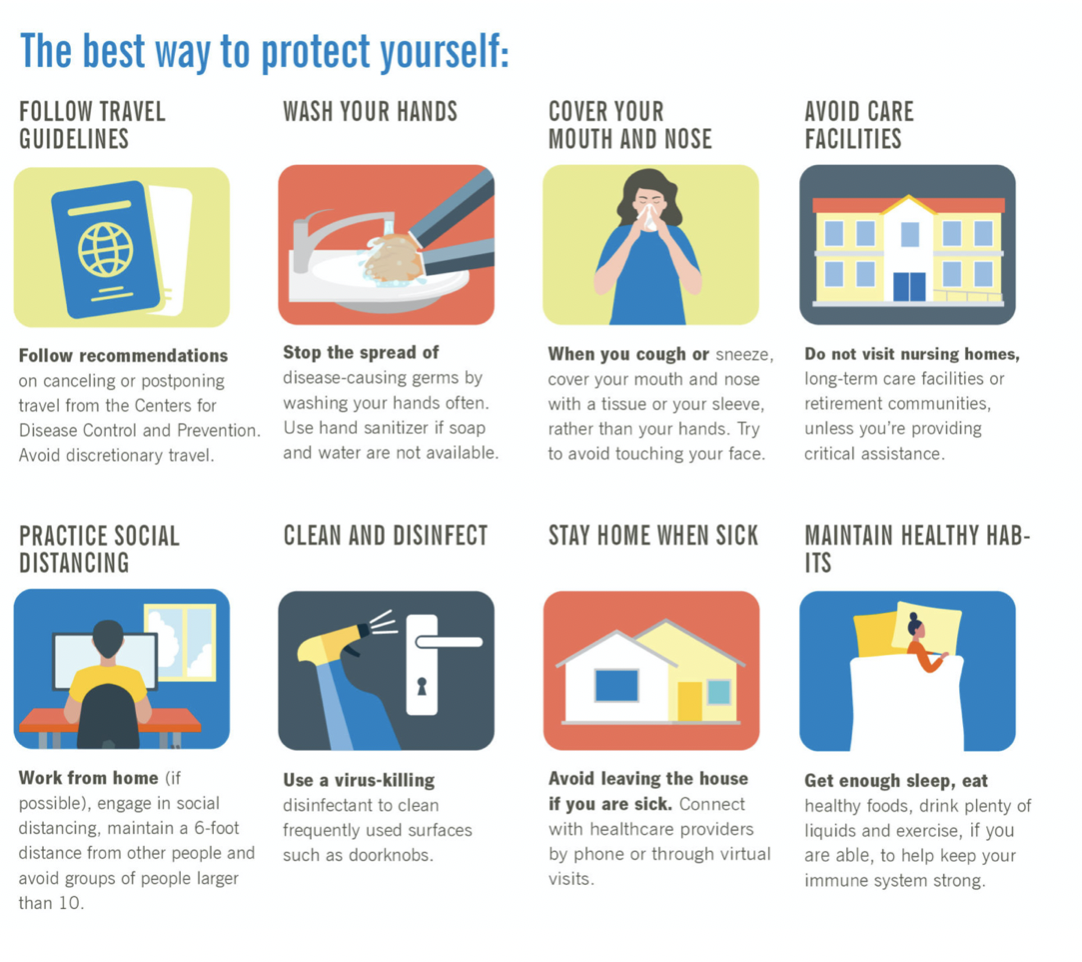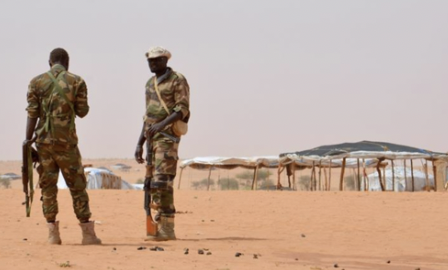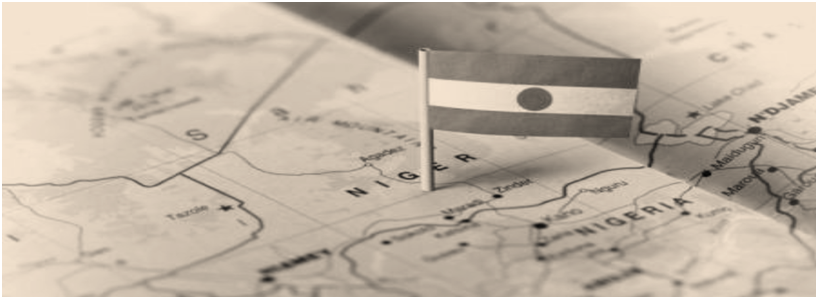
Weekly Highlight
- Civilians killed as attackers storm Niger refugee camp – 01 June 20
- COVID-19: 4 new cases in Zinder, 2 in Niamey and 1 in Agadez
- Turkey delivers medical aid to Niger to combat virus
- IOM Niger: Assisted Voluntary Return for Stranded Malians; Over 1,400 Remain in Transit Centers
- Niger exchange rate – Exchange rates West African CFA franc – USD = 580.950 XOF XOF= 0.00172132 USD
EXECUTIVE SUMMARY
Civilians killed as attackers storm Niger refugee camp – 01 June 20
At least three civilians have been killed in a coordinated attack on a camp housing thousands of Malian refugees in western Niger, according to the United Nations. Some 50 fighters launched a “well-planned operation” against the Intikane refugee camp in the Tahoua region on Sunday afternoon, the United Nations High Commissioner for Refugees (UNHCR) in Niamey told AFP news agency. The three victims were the head of a refugee committee, the head of a refugee vigilance group and a representative of a Tahoua nomadic group, the UNHCR said on Monday. The attackers also abducted a guard and sabotaged the camp’s water supply. “The jihadists inflicted damage on the camp’s facilities, in particularly emptying the food supplies and destroying the system which supplies drinking water to the area within a radius of 40km (25 miles),” the UN agency said.
COVID-19: 4 new cases in Zinder, 2 in Niamey and 1 in Agadez
In its daily update on the situation of Covid-19, the Ministry of Public Health announced that four (4) new cases out of 54 tested were recorded this Saturday June 6, 2020. These four (4) cases come from the region of Zinder. Niger confirmed this Friday, June 05, 03 new cases of coronavirus (2 in Niamey, and 1 in Agadez), bringing the balance to 966, according to the press release of the secretary general of public health. The number of coronavirus-related deaths in Niger to date stands at 65 while the number of people declared cured has risen to 863, 38 cases under treatment according to the same press release.
Turkey delivers medical aid to Niger to combat virus
A Turkish military cargo plane loaded with medical supplies arrived in Niger on Thursday, the National Defense Ministry said. “Turkish Armed Forces aircraft carrying medical supplies for use against the COVID-19 outbreak has landed in Niger,” Turkey’s ministry said in a statement on Twitter. Since the start of the global outbreak, Turkey has been acting in line with the global solidarity and extending a helping hand to many other countries. According to President Recep Tayyip Erdogan, Turkey has sent medical items to 102 countries so far to help their fight against COVID-19.
IOM Niger: Assisted voluntary return for stranded Malians; Over 1,400 remain in transit centers
The International Organization for Migration (IOM) yesterday (4/06) assisted 179 Malian nationals stranded in Niger with their voluntary return home. The migrants had been waiting at IOM’s transit centres in Niamey and Agadez for almost three months due to COVID-19-related border closures. “It has already been three months that I have been staying in this transit centre in Niamey,” said Moussa, one of seven unaccompanied migrant children who travelled on Thursday’s charter. “I can’t wait to finally be back home and see my family.” IOM has documented roughly 30,000 stranded migrants in West and Central Africa. This figure includes nearly 18,000 foreigners unable to cross borders to return home, and people like Mauritanian herders who need to cross into neighbouring countries to graze their cattle.
Audit of the Ministry of Defense in Niger: two suppliers on the index
The audit of the Nigerien Ministry of Defense revealed a shortfall of more than 110 million euros for the State, via overcharges, fictitious contracts, unfair competition. An investigation is currently being carried out by the judicial police. The audit report is not concerned with the administrative chain that led to the validation of contracts but focuses on a dozen suppliers of military equipment. Two men are, however, signatories to the majority of contracts passed by the investigators. Aboubacar Charfo, known above all for his activity in the construction industry. And the first in terms of the number of contracts signed: Hima Aboubacar, alias Petit Boubé. Its name has long resonated in the defense markets sector.
USEFUL INFORMATION
List of holidays in Niger 2020
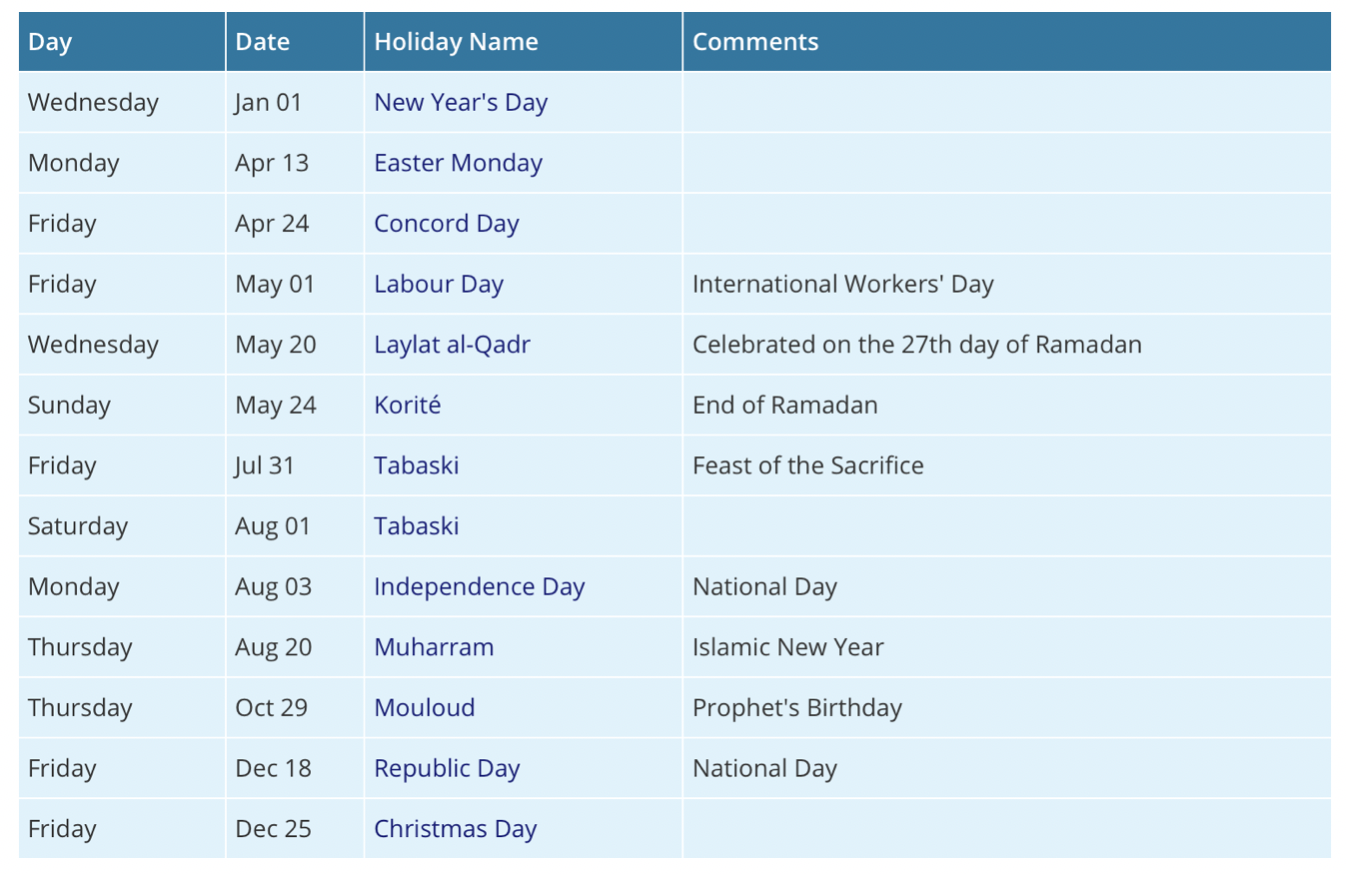
Exchange rates West African CFA franc
According to our most recent information (08th June 2020) the West African CFA franc has the following exchange rates.
The exchange rate from your own bank or credit card company will differ somewhat from the exchange rates as mentioned above. Your bank or credit card company might also apply additional international charges.
| USD = 580.950 XOF | XOF= 0.00172132 USD |
| EUR = 655.957 XOF | XOF= 0.00152449 EUR |
| **As at 08 June 2020 |
NIGER SECURITY & RISK LEVELS
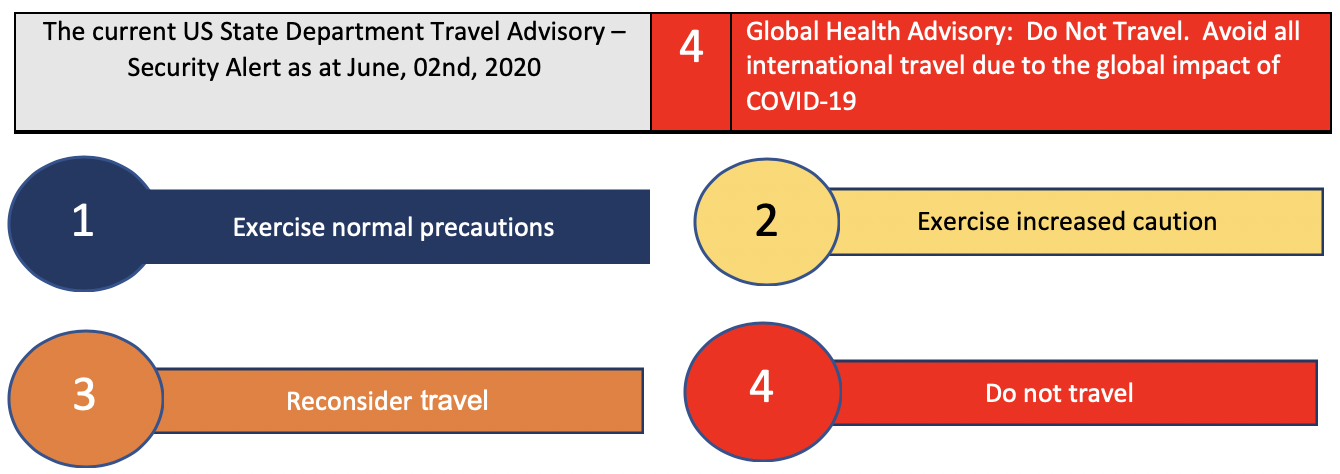
Location: Niger
Event: The Nigerien Ministry of Public Health has confirmed 958 cases of COVID-19 in Niger, including 65 deaths.
Niger’s land border closures remain in effect; they have been closed since March 19. Commercial international flights into Niger’s international airports have been cancelled until further notice.
Updates
Niger’s state of emergency for the entire country is in effect until July 11, 2020.
- As of June 1, all public schools have re-opened after being closed since March 20.
- As of May 29, bars and night clubs have been allowed to reopen.
- As of May 25, the ban on gatherings of at least 50 people, including workshops, seminars, and social ceremonies was lifted.
- As of May 25, Niger reinstated regular work hours (8am to 5pm Monday through Thursday and 8am to 1pm on Friday).
- As of May 15, the city of Niamey is no longer under a health confinement.
- As of May 13, places of worship including mosques and churches have re-opened, provided proper social distancing and hygiene measures are followed.
- As of May 13, the curfew that was in effect from 9 p.m. to 5 a.m. has been lifted.
- It is mandatory to wear a face mask or other objects that cover the mouth and nose while in public places. Everyone must also respect a distance of at least one meter between people in restaurants, businesses, and other public places.

NIGER INCIDENT MAPPING
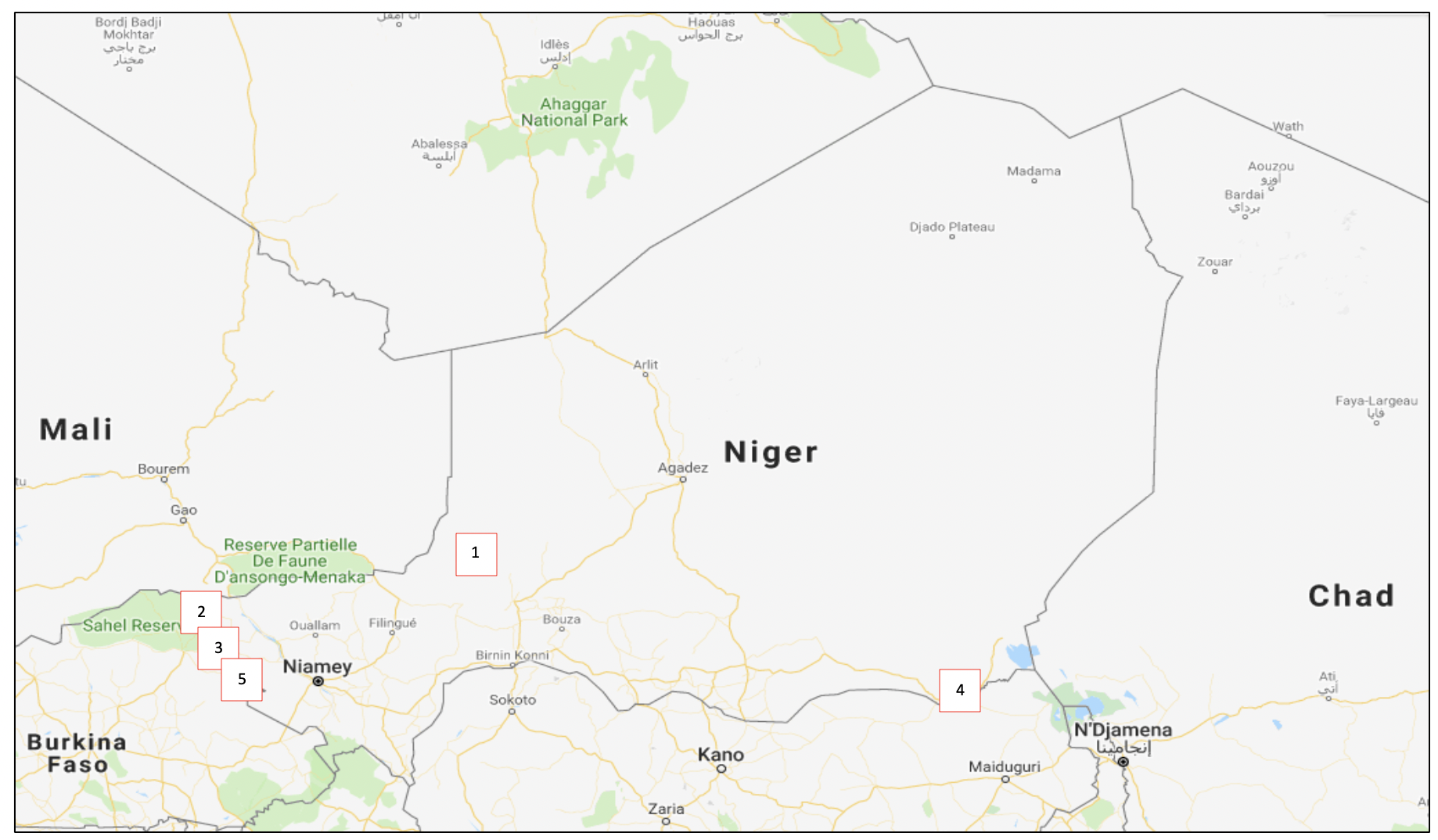
NIGER INCIDENTS IN DETAIL
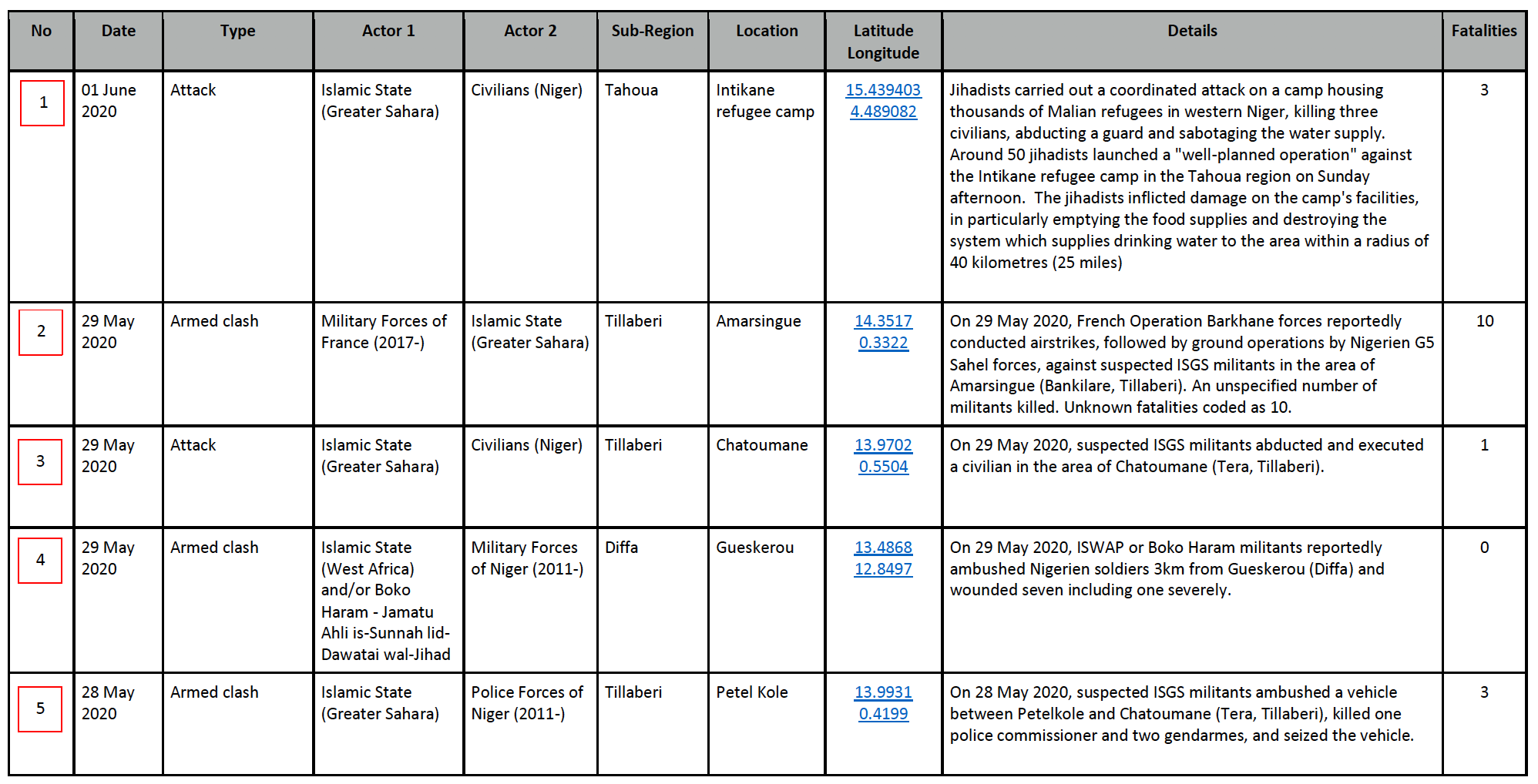
Civilians killed as attackers storm Niger refugee camp – 01 June 20
At least three civilians have been killed in a coordinated attack on a camp housing thousands of Malian refugees in western Niger, according to the United Nations. Some 50 fighters launched a “well-planned operation” against the Intikane refugee camp in the Tahoua region on Sunday afternoon, the United Nations High Commissioner for Refugees (UNHCR) in Niamey told AFP news agency. The three victims were the head of a refugee committee, the head of a refugee vigilance group and a representative of a Tahoua nomadic group, the UNHCR said on Monday. The attackers also abducted a guard and sabotaged the camp’s water supply. “The jihadists inflicted damage on the camp’s facilities, in particularly emptying the food supplies and destroying the system which supplies drinking water to the area within a radius of 40km (25 miles),” the UN agency said.
Alongside the local population, the town of Intikane is hosting some 20,000 Malian refugees and 15,000 internally displaced Nigerien citizens, all of whom fled their villages due to violence perpetrated by armed groups. Fighters with links to al-Qaeda and the ISIL (ISIS) group have increasingly mounted attacks across the Sahel in recent years despite the presence of thousands of regional and foreign troops in the region.
Niger is home to nearly 60,000 Malian refugees who fled their country’s north after it fell under the control of al-Qaeda-linked groups in 2012, according to the UN. A French-led military intervention the following year pushed them out, but parts of Mali remain out of government control and awash with armed groups.
150 feared dead after US-trained troops accused of Niger rampage
More than 100 men are missing, and dozens feared dead after soldiers in Niger allegedly went on a rampage to avenge a spate of jihadist attacks. Documents allege that Niger’s security forces took part in a series of massacres, extrajudicial killings and forced disappearances over the past few months in the western Tillaberi region. In total, the documents allege that at least 150 people are dead or missing. If proven, the allegations mark a turning point in the battle for the Sahel region raging south of the Sahara.
Niger is a key Western ally in the fight against jihadism in Africa and has, up to now, refrained from major human rights abuses. According to a document compiled by local residents and human rights activists, at least 52 people were killed or died after being tortured by members of the security forces in Tillaberi, a region that borders Burkina Faso and Mali, from January 28 to April 12. The bodies of some of those killed were left by the side of the road, while others were buried in mass graves. The 52 deaths allegedly occurred around villages in the Banibangou, Ayarou, Torodi and Inates rural communes. A second document is a five-page handwritten list of another 102 names of men from villages in Inates.
POLITICAL OVERVIEW

According to the Nigerien head of state, the Covid-19 could increase insecurity in the Sahel region, making the pandemic even more difficult to control. Hence the importance of maintaining routine immunization sessions to protect populations. The Covid-19 pandemic proves to us that diseases infectious drugs pose a terrible threat to global security. This pandemic is more devastating than any conflict, act of terrorism or major health emergency never occurred in history of humanity. It’s a threat to life, to subsistence and for the economy of billions of people around the world. But for those living in the Sahel region, this new coronavirus also poses an additional security risk by threatening to further destabilize the whole region.

The President of the Republic Issoufou Mahamadou participated, this Thursday, June 04, 2020, by videoconference, as guest of honor, at the world summit on vaccination, which was held in the United Kingdom, under the presidency of the Prime Minister. British Minister Boris Johnson. Taking stock of the meeting, the Minister of Public Health, Dr Idi Illiassou Mainassara said that this summit aims to mobilize 7.5 billion US dollars to help countries protect more than 300 million people and avoid the loss of life for 13 million people. He made it clear on this occasion that with the advent of the COVID-19 pandemic which had a negative impact on the development and implementation of the activities of the Expanded Program on Immunization (EPI), the indicators had lower than the EPI wherever this pandemic has raged.
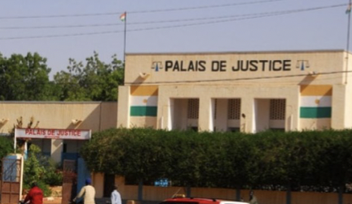
In Niger, the judicial investigation continues after the audit carried out on public procurement at the Ministry of Defense. The judicial police have already heard several protagonists. Justice was seized on the basis of a final audit report which is not the provisional report, mediated until then. This report, dated March 29, proves that negotiations between the authorities and suppliers have taken place and have resulted in promises of partial reimbursements. After the shock caused by the first audit report in February, the government asked suppliers to explain themselves. The goal then was to find an amicable solution. For three weeks, the suppliers were therefore called one by one to the Ministry of Defense.

In continuation of the tireless efforts of the General Secretariat of the Organization of Islamic Cooperation (OIC) and its competent bodies to contain the harmful repercussions of the Coronavirus pandemic (Covid-19), the Islamic Solidarity Fund (ISF) , an OIC subsidiary body, resumed, after the celebration of Eid Al-Fitr, its urgent financial grants to a second group of least developed countries members of the Organization, in order to strengthen their capacity to cope with the pandemic, particularly in the health sector. This is how checks approved by the OIC Secretary General, Dr Youssef bin Ahmed Al-Othaimeen, were handed out today, June 3, 2020 at the headquarters of the OIC General Secretariat, to the delegates of the permanent missions. Burkina Faso, Niger, Uganda, Palestine, and Somalia, we learned from the pan-Islamic organization. This financial assistance should enable these countries to make up for the lack of basic medical supplies and equipment, such as test kits, personal protective equipment for health workers, surgical masks, artificial respirators, medicines, hospital beds and intensive care equipment.
MEDICAL REQUIREMENTS AND INFORMATION
Vaccinations required to enter the country
Proof of vaccination against yellow fever is required over one year of age entering the country. The government of Niger recommends vaccine for travelers departing Niger.
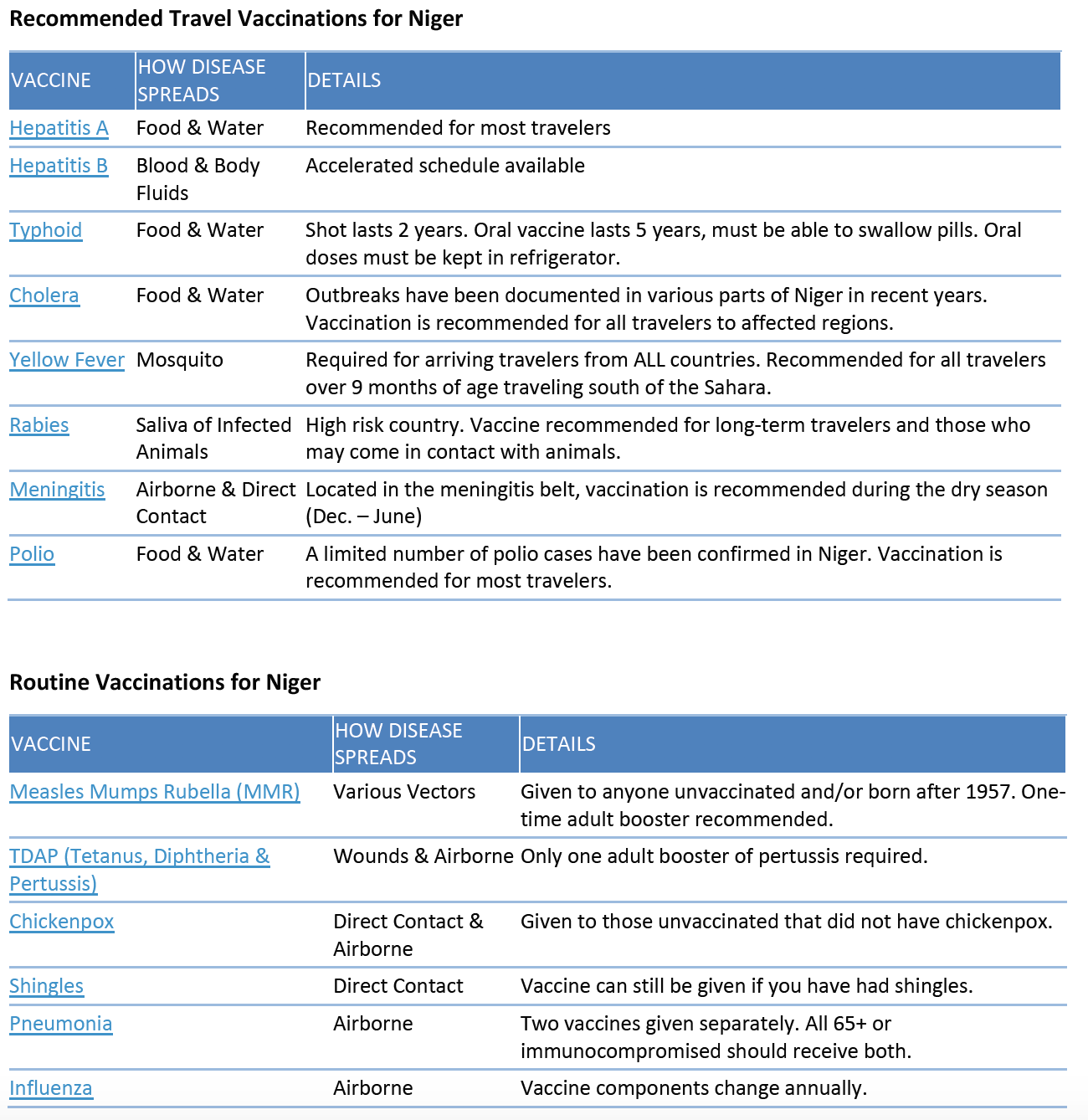
CORONAVIRUS DISEASE (COVID-19) ADVISE FOR THE PUBLIC
Protecting yourself and others from the spread COVID-19
You can reduce your chances of being infected or spreading COVID-19 by taking some simple precautions:
- Regularly and thoroughly clean your hands with an alcohol-based hand rub or wash them with soap and water. Why? Washing your hands with soap and water or using alcohol-based hand rub kills viruses that may be on your hands.
- Maintain at least 1-meter (3 feet) distance between yourself and others. Why? When someone coughs, sneezes, or speaks they spray small liquid droplets from their nose or mouth which may contain virus. If you are too close, you can breathe in the droplets, including the COVID-19 virus if the person has the disease.
- Avoid going to crowded places. Why? Where people come together in crowds, you are more likely to come into close contact with someone that has COIVD-19 and it is more difficult to maintain physical distance of 1 meter (3 feet).
- Avoid touching eyes, nose and mouth. Why? Hands touch many surfaces and can pick up viruses. Once contaminated, hands can transfer the virus to your eyes, nose or mouth. From there, the virus can enter your body and infect you.
- Make sure you, and the people around you, follow good respiratory hygiene. This means covering your mouth and nose with your bent elbow or tissue when you cough or sneeze. Then dispose of the used tissue immediately and wash your hands. Why? Droplets spread virus. By following good respiratory hygiene, you protect the people around you from viruses such as cold, flu and COVID-19.
- Stay home and self-isolate even with minor symptoms such as cough, headache, mild fever, until you recover. Have someone bring you supplies. If you need to leave your house, wear a mask to avoid infecting others. Why? Avoiding contact with others will protect them from possible COVID-19 and other viruses.
- If you have a fever, cough and difficulty breathing, seek medical attention, but call by telephone in advance if possible and follow the directions of your local health authority. Why? National and local authorities will have the most up to date information on the situation in your area. Calling in advance will allow your health care provider to quickly direct you to the right health facility. This will also protect you and help prevent spread of viruses and other infections.
- Keep up to date on the latest information from trusted sources, such as WHO or your local and national health authorities. Why? Local and national authorities are best placed to advise on what people in your area should be doing to protect themselves.
Advice on the safe use of alcohol-based hand sanitizers
To protect yourself and others against COVID-19, clean your hands frequently and thoroughly. Use alcohol-based hand sanitizer or wash your hands with soap and water. If you use an alcohol-based hand sanitizer, make sure you use and store it carefully.
- Keep alcohol-based hand sanitizers out of children’s reach. Teach them how to apply the sanitizer and monitor its use.
- Apply a coin-sized amount on your hands. There is no need to use a large amount of the product.
- Avoid touching your eyes, mouth and nose immediately after using an alcohol-based hand sanitizer, as it can cause irritation.
- Hand sanitizers recommended to protect against COVID-19 are alcohol-based and therefore can be flammable. Do not use before handling fire or cooking.
- Under no circumstance, drink or let children swallow an alcohol-based hand sanitizer. It can be poisonous.
- Remember that washing your hands with soap and water is also effective against COVID-19.
